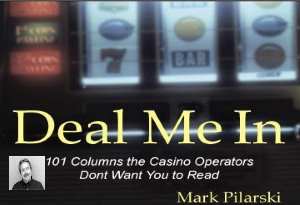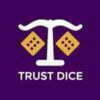I was recently playing blackjack at one of Detroit’s casinos, and I was dealt a blackjack with the dealer showing an ace. I opted not to take ‘even money’ as I had always thought you shouldn’t take insurance. After checking her hole card and turning over a face card for a dealer blackjack, the dealer told me I was wrong, that it was not the same as insurance, that it was free money. Was the dealer correct?
Also, I recently had another situation and wonder if what I did was correct. Playing blackjack again, the dealer inadvertently pulled two cards and dealt them both to the first player. She called over the pit boss who proceeded to give the top (first) card to the first player, burned the second card and then had the dealer continue dealing the rest of the hands, including her own. The pit boss then gave everyone at the table the option of playing their hand or pulling back their bet and folding their hand. The dealer showed a face card. Everyone at the table, except me, pulled back. I had a hard 18. I figured that was a decent hand and gambled I’d have a chance to win. I didn’t. What should I have done? Suzanne R.
When I pitched cards, it amazed me how many players jumped on the opportunity of taking even money, or insurance, when I showed an Ace. Except for counting cards, making either of these wagers is fiscally not a sound move, even if, as in your case, being dealt a blackjack. The reason being, Suzanne, ten-point cards (10, J, Q, K) make up 31% of the deck, so there is a 69% chance that the dealer does not have a blackjack. Add to that you are sitting on one ten-point card, and with a quick scan of the table, you will probably note additional ten-point cards; consequently, the chances now become even greater than 69% that the dealer doesn’t possess one. Therefore, Suzanne, based on the 3 to 2 payoff that you receive for a blackjack, even if you possess a snapper, you will make more money over the long run by never taking insurance or even money. Suzanne 1, Dealer 0.
As to your second question, when your dealer’s handicraft at dealing cards falters, the dealer is not the one who settles any squabble. All authoritative moves are made by a pit boss. Now, switching hats and speaking as a former pit boss, my decision would have duplicated the one you received. That is not to say that different pit bosses couldn’t render contrary conclusions. All the same, giving everyone at the table the opportunity to withdraw their wagers was something I always did.
Further, on your second question, an 18 against a face card will NOT make you a long-term winner at blackjack; so, you actually should have pulled your bet. Even a 19 will lose more often than win when the dealer’s upcard is a 10 or an ace. What constitutes a strong hand are those 20’s, which you didn’t get. With a 10-10 against any dealer’s upcard, this is where you make money over the long run. Approximately, 70% of your overall winnings at blackjack result from these two hands: 10-10 and A-10.
Next time a pit bull playing gambling referee corrects a dealer gaff and gives you this same opportunity, yank your bet. The House 1, Suzanne 0.
Gambling Wisdom of the Week: “Retirement is like a long vacation in Las Vegas. The goal is to enjoy it the fullest, but not so fully that you run out of money.” —Jonathan Clements




















